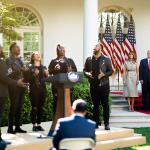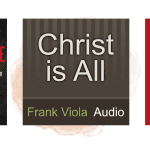From Mark Stevens:
Cliff Kvidahl over at ‘Theological Musings’ has responded to a rather evocative post outlining ways in which one can spot a liberal seminary (See: Beware of the Liberals! Marcan Priority and Inspiration). I have to be honest and say I felt incredibly sad when I read “How to Spot a Liberal Seminary” According to the author, if a seminary holds to a belief that the whole Bible is anything other than the “plenary and verbally accurate” (i.e. as a whole and in its parts), then it has no business claiming to be conservative. Furthermore, if it holds to Marcan priority, women in ministry, anything other than Mosaic authorship of Pentateuch, and doesn’t teach a literal 6 day creation, then it is liberal!
The author goes on to claim that if we train at such a seminary we are in danger of becoming un-equipped for ministry! Wow! That is a mighty big claim, no? The seminary I trained at taught critical scholarship of the Old and New Testaments as a way of better understanding the meaning of the text. It trains women for pastoral ministry, it believes in the authority of scripture but would never use the words inerrant or plenary to describe the bible. And yet, in spite of all of this is I would hardly call it liberal. It seems to me their definition of liberal is “whoever doesn’t agree with our pre-suppositions about the bible and secondary issues relating to the history and source of the text are liberal.” In my opinion this isn’t so much a conservative stance but more of a fundamentalist one. But hey, I could be wrong.
Now it might be true that your seminary is liberal but may I ask if that is a bad thing? I think of myself as a conservative (I hold to virgin birth, Resurrection, and even Pauline authorship of the pastorals!) but I am a pastor in what I would consider a liberal denomination. What I have come to realise is that word liberal shouldn’t be used to define someone’s faith. Rather it should be used to describe their tradition and approach (in much the same way one might use progressive, Pentecostal, Reformed etc). Don’t get me wrong, I disagree with a lot of the things my colleagues believe. It is downright hard at times. The reason I find it difficult is because I was taught to see liberals as wrong and even as unsaved! However, when I was left for dead (spiritually speaking) by the denomination that called me and trained me for ministry it was the liberals who played Good Samaritan. When I was lying on the side of the road ‘spiritually wounded’ they helped me back to health. They were my Samaritan! They paid the bills. They were Jesus to me in ways my tradition were not. I struggle in my denomination and at times as it can be lonely. But I know this is where God wants me. He led me here. So I rest in that.
Our church is currently looking at The Jesus Creed. In Scot’s chapter on ‘Believing in Jesus’ I shared some thoughts with our church which came out of my reading of that chapter about what it means to believe and what belief looks like:
- Faith is not about believing the right things about Jesus, nor is about looking right, acting right or being right. It’s about believing in Jesus.
- It isn’t about what we believe; it is that our belief leads us into relationship with Him.
- And when we come to the table we identify ourselves as disciples, or friends, of Jesus! Our doctrine, our theology or anything like it does not open up a place at the table for us. We must hold our theology lightly and respectfully.
I realise that this post has gone beyond that of the original thoughts related to seminary but one gets the feeling that under-girding the critique is the notion that liberals are not Christians. If a person calls Jesus Lord then I personally am happy to call them a brother or sister in Christ. If they are pro-gay marriage, don’t believe in the resurrection, if they believe someone other than Paul wrote 2 Timothy then I will agree to disagree and do my best to understand why they believe what they do. However, I will also stand firmly on the things I believe to be true of our faith but I will endeavour to respectfully dialogue with folks about those beliefs.
What I will not do is, and what I think is bad Christian practice, is to allow my beliefs to define another person’s faith. Our tradition, in my case conservative, should define what we think not whether another person is saved or a Christian. This is not an easy road to walk and I still carry many questions about how this works. It seems to me this is what God requires of any person who leads a “love God, love your neighbour as yourself” kind of life. And hey, it is the way I wish to be treated by those colleagues who disagree with me! When will we get it? Being brothers and sisters in Christ is about Jesus and not what we believe about him. Let us not forget that sometimes who is liberal and who is conservative depends upon where stand!
Personally I’d love to hear from others who have walked this road or from those who have some thoughts on how conservatives and liberals might live together in respect and with respectful dialogue. All I ask is that comments do not become personal or abusive against me or any other commentator. 🙂















